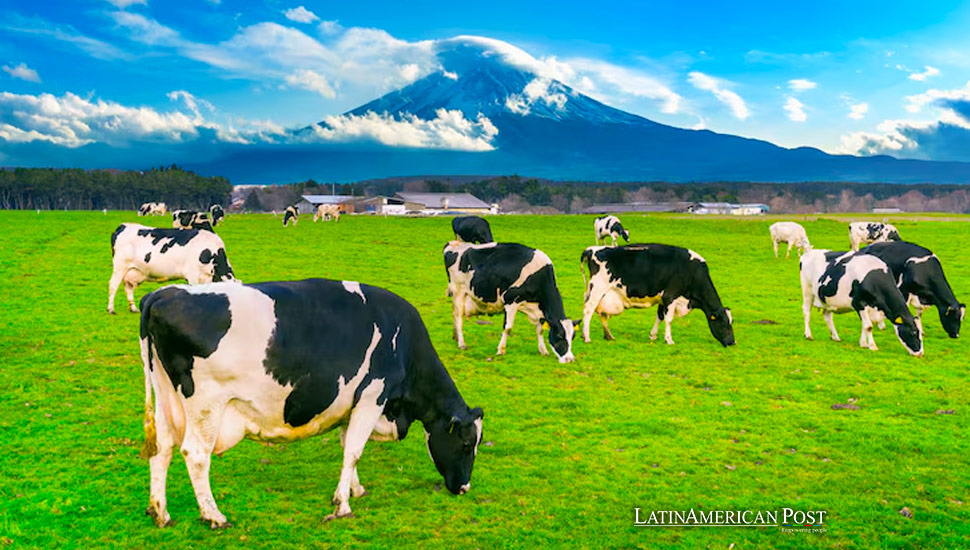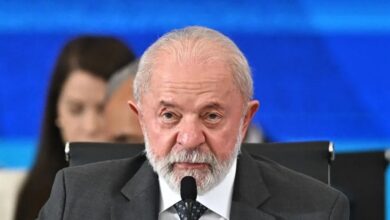Lula Presses for Brazilian Beef Imports in Japan Trade Talks

Brazilian President Luiz Inácio Lula da Silva urges Japanese Prime Minister Fumio Kishida for a balanced trade relationship, highlighting the need for Japan to import Brazilian beef during Kishida’s visit to Brasília.
During a high-profile meeting in Brasília, Brazilian President Luiz Inácio Lula da Silva made a significant push for a more reciprocal trade relationship with Japan, advocating strongly for the importation of Brazilian beef—a move currently stalled by Japanese sanitary restrictions. This discussion occurred during Prime Minister Fumio Kishida’s visit, marked by diplomatic talks and the signing of nearly 40 bilateral agreements.
Brazil’s Push for Mutual Trade Benefits
Addressing the fall in bilateral trade to the current $11 billion, President Lula emphasized the importance of mutual benefits in international trade relations. “Good trade is not one where one party sells, and the other buys nothing; good trade is a two-way street,” Lula stated at the Planalto Palace. He used the occasion to highlight Brazilian beef’s quality and competitive pricing, expressing hope that Kishida’s visit would lead to reconsidering the existing import restrictions.
In a lighthearted yet pointed remark, Lula suggested, “Take the Prime Minister to eat churrasco at the best restaurant in São Paulo so that next week he starts to import our meat.” This comment underscores the strategic use of cultural diplomacy, attempting to sway trade policies through personal experiences of Brazil’s renowned cuisine.
Prime Minister Kishida did not directly address the issue of beef imports during his visit, but he expressed an eagerness to elevate the economic cooperation between Japan and Brazil “to the next level.” He acknowledged the challenges in the current international climate and stressed the importance of reinforcing the United Nations and pushing for reforms in the Security Council—a long-standing goal for both nations seeking permanent seats.
Deepening Ties with Mercosur
The Japanese leader also spoke on potential ways to strengthen ties with the Mercosur trade bloc, hinting at deeper economic integration. This aligns with Japan’s strategy to diversify its economic partnerships in South America, a region rich in agricultural and mineral resources critical for Japan’s industries.
Accompanied by a delegation of 150 business leaders and officials, Kishida’s visit was fruitful, culminating in signing agreements across various sectors, including cybersecurity, science and technology, agriculture, and environmental cooperation. These agreements are foundational to a renewed partnership that balances economic interests with strategic geopolitical engagements.
Following his official duties in Brasília, Kishida planned to visit Paraguay before returning to Brazil to meet with business leaders and the Japanese diaspora in São Paulo. This segment of his trip highlights the deep cultural and economic ties between Japan and Brazil, home to the largest Japanese community outside Japan, estimated at over two million people. Conversely, Japan hosts a significant Brazilian community, the fifth-largest Brazilian diaspora globally.
Navigating Global Dynamics
The bilateral discussions and agreements between Brazil and Japan come at a crucial time. Under President Lula’s administration, Brazil is keen on expanding its global trade footprint, especially for its agricultural sector, including beef exports. For Japan, engaging more deeply with Latin America—and Brazil, in particular—offers a strategic avenue to secure a diverse range of imports essential for its resource-scarce economy.
Also read: Brazil and Central America at the Heart of Mercon’s Bankruptcy Saga
This evolving partnership between Brazil and Japan is a testament to the complex interplay of diplomacy, trade, and cultural exchanges shaping today’s globalized world. As both nations continue to navigate the challenges of international trade and diplomatic engagements, the outcomes of such high-level visits will likely influence broader geopolitical dynamics in the Asia-Pacific and Latin American regions.





